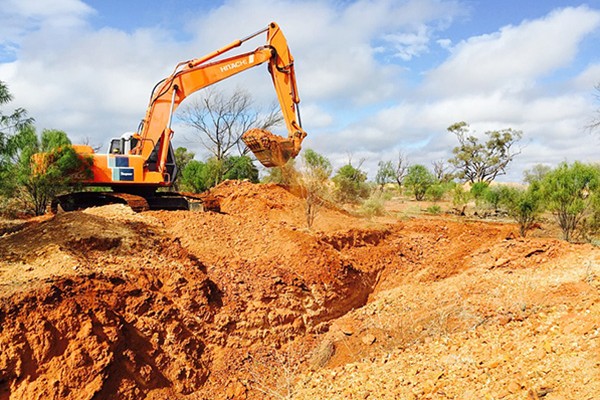Raucous squawking and singing punctuate my childhood memories. The noise of white-tailed black cockatoos (Carnaby’s cockatoos) was a part of the background noise. Much like the yearly blooming of the banksias, which was a constant signal that the school year was coming to an end and an excuse to look out the window, to daydream. Like the banksias, I didn’t notice the black cockatoos until I was gone – until they were gone.
Banksia Park was the name given to the area I grew up in, and one of the largest banksia woodland communities was my playground. Gradually it was replaced by roads and urban sprawl, where nothing led anywhere. It seemed that the people living in the area also felt the same underlying frustration – no plan, no direction, no purpose. What remained of the woodland was a road, decades in the planning. Much like many other former playgrounds in the Perth area.
And for what? Perth’s cultural fascination for planning and infrastructure with no end point, against all advice, is re-reflected in the destruction of and conflict with the natural environment. It is an infinite regress into a mire that appears beyond extraction.
I’ve written previously about ‘Far Canal Colin’s’ horrendous policy decisions. The latest escalation in hostilities between the Western Australian population and the environment is just a continuation of his blundering arrogance. A key concern about WA Premier Colin Barnett’s policy philosophy is the continued dismantling of Indigenous heritage protections and registration of sacred sites.
The campaign against Indigenous heritage protections has proved to be one of the main enablers of the Roe 8 extension. For eight years, Colin Barnett has engaged in governance by deliberate incompetence. The State Environmental Protection Authority (EPA), the Department of Environment Regulation (DER), the Department of Parks and Wildlife (DPAW) and the Department of Aboriginal Affairs (DAA) have been systematically stripped and denuded of scientific expertise, leading to a situation where they are completely unable to fulfill the tasks that they are responsible for carrying out.
Nothing typifies this more than the Roe 8 ‘archaeological’ dig conducted by people barely competent in holding a shovel. To the extent that their dig did not produce more than two holes, each 20cm deep, near Roe Swamp (a sacred site between Bibra and North Lake, south of Perth). A place known from decades of research to have been a place of human habitation for at least 5 to 6000 years, probably more. Despite this, with the overwhelming evidence discovered from their two holes, the DAA declared that the site has no evidence of human habitation, and subsequently de-registered the site.
Meanwhile the reasoning behind previous recommendations by the EPA – that the Roe 8 extension could not be completed without significant damage to threatened and endangered ecological communities and floristic types – had suddenly changed. The company that completed the vegetation survey, AECOM, has been implicated in various corporate corruption scandals, exposed most recently by Carmen Lawrence. These vegetation surveys were conducted on a fee for service basis and the Government knew exactly the results that they would get.
This is a matter on record, that independent consultants inducted by Main Roads (in charge of the Roe 8 project) were told, ‘No matter what you find there [in the Roe 8 planned site], this road is going ahead according to the Premier’ and, ‘you may encounter community people around the site who are very opposed to this project. If you feel upset by any of this we have counselling available for you to overcome any disturbing feelings’.
Other nonsensical conclusions from the new EPA Report included such things as: ‘runoff water quality will be improved’, which, in my research, has never happened in the case of any highway development in close proximity to a wetland complex – a wetland complex which joins the Jandakot Mound and is a significant source of drinking water for the southern suburbs of Perth. As was the seeming blindness to evidence of Black Cockatoo roosts within the proposed clearing sites, which should have triggered an EPBC assessment on its own.
The incompetence of the various departments means that surveys and information cannot be correctly analysed against the Environmental Protection and Biodiversity Conservation Act (EPBC). It has fallen to community groups such as Save Beeliar Wetlands to test and interrogate conclusions reached in relation to the EPBC.
Despite detailed and legitimate protests against conclusions reached by the EPA – some by scientists previously removed from various government departments – the EPA failed to address factual errors. These were systematically censored and covered up. And these complaints were not from the ‘layman’. They were from botanists and other scientists who have dedicated their lives to studying the unique environment of our global biodiversity hotspot. These are world-renowned and revered scientists. Those responsible for the incompetent surveys, censorship and cover up should check the angles of the beds they sleep in – they might just be crooked.
When the protests and overwhelming scientific evidence to counter the EPA conclusions were ignored, court cases were inevitable. What was not inevitable was the conclusion reached, that the Government did not have to comply with frameworks, policies and recommendations from its own departments in order to comply with the EPBC act. This precedent should raise alarm bells with everyone in Australia. There is potentially nothing to stop a species going extinct from poorly planned development, through incompetence, if an environmental survey is deliberately inadequate and incomplete. And there is no recourse if guidelines aren’t followed. There is no longer anything protecting unique, threatened or endangered environments or species.
In Western Australia, problems aren’t there to be addressed, to be worked with creatively or innovatively – they’re there to be bulldozed, confronted, to prove our mastery of our beautiful and challenging environment. It is only hostile because we make it so. As Tim Winton wrote, ‘Western Australians are great trashers and thrashers – it’s a proud tradition and one we’re always threatening to defend by seceding from the rest of the country. A state of small people with big bulldozers’. After all, Perth was founded by the felling of a tree. It’s a cultural legacy that seems rooted in our bedrock and unable to be removed.
With the scene set, any bad infrastructure or development is able to be rammed through if the price is right. Tony Abbott arrived for the Roe 8 extension with 400 million dollars of funding. Some conveniently placed political donations from engineering firms also did the trick. Areas of congestion could be addressed with that same money in ways that would definitely alleviate traffic and not destroy endangered environments. Instead Roe 8 will lead to a trucking funnel in East Fremantle, and make crossing the river into North Fremantle all but impossible, making the purpose of Roe 8 (easier access to Fremantle Port) completely redundant.
It is only ideological. Lines on a map make the reality of the external world irrelevant, null and void. With the weight of sixty years of planning behind it, and none of the improved science applied, the last remaining vegetation types on the Swan Coastal Plain began being bulldozed before Christmas. Sacred sites were filled in, mulched and destroyed. Opposition has been fierce, with hundreds of arrests carried out by a police force being used as a private security firm. This is how Colin Barnett has always operated. It is completely consistent with his ethos – govern by incompetence to develop the maximum opposition possible. To prove a point. To show that he doesn’t need consensus to make decisions.
The legacy of Roe 8 will be horrible. As the sounds from the Coolbellup flocks of black cockatoos disappear, just as the Leeming flock did before them, haunting sounds will remain of a heinous corruption, a throwback to a previous era in Western Australian politics. A corruption that might put that period to shame. The only saving grace will be the now fierce and organised resistance to business as usual in Western Australia. People with long memories and fire in their hearts. No doubt a target for the bulldozers in a future battle, but a battle that will eventually be won. It has to be – or our environment will overthrow us.






